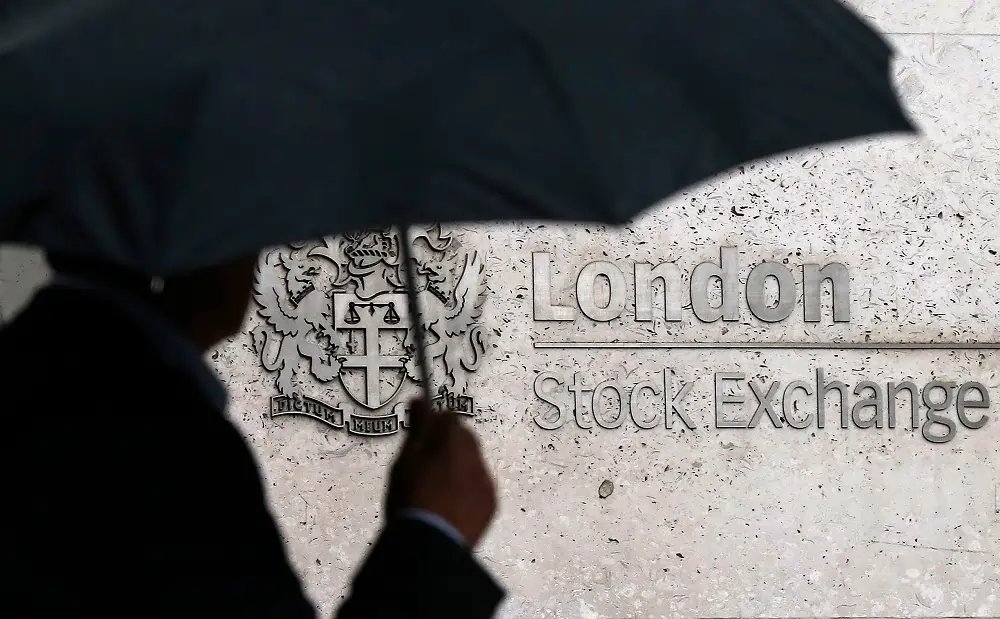UK’s FTSE 100 set for worst week in 16 months
Published by Jessica Weisman-Pitts
Posted on December 20, 2024
2 min readLast updated: January 27, 2026

Published by Jessica Weisman-Pitts
Posted on December 20, 2024
2 min readLast updated: January 27, 2026

(Reuters) – UK’s FTSE 100 touched an over one-month low on Friday, led by declines in personal goods and bank shares, with the main stock index on track for its sharpest drop since August 2023 for the week marked by a raft of central bank policy decisions.
(Reuters) – UK’s FTSE 100 touched an over one-month low on Friday, led by declines in personal goods and bank shares, with the main stock index on track for its sharpest drop since August 2023 for the week marked by a raft of central bank policy decisions.
The FTSE 100 dropped 0.7% as of 0915 GMT, set to log a 3% weekly decline, with personal goods, banks and defence sub-indexes shedding over 1%.
The midcap FTSE 250 was down 0.6% at a near one-month low.
The weakness in the domestic market was also in line with its European peers that got knocked down by U.S. President-elect Donald Trump’s comments about potential tariffs on the European Union.
Wall Street futures also took a beating ahead of a crucial inflation report – the Core Personal Consumption Expenditures, with sentiment further weakening in the wake of a fast-approaching government shutdown after a Trump-backed spending bill failed in the U.S. House of Representatives.
However, losses in UK stocks were less intense than other counterparts after data showed British retail sales rose by a weaker-than-expected 0.2% in November.
Also providing some comfort was a smaller-than-expected budget deficit, which gave a slight boost to finance minister Rachel Reeves, who has been under pressure following her budget announcement.
A hawkish Federal Reserve outlook that rocked global financial markets and interest-rate holds by the Bank of England and Bank of Japan were some of the major events for the week.
In this year’s final policy meetings, Britain, Japan, Norway and Australia held firm, while Switzerland, Europe, Sweden and Canada implemented rate cuts.
Shares of water utilities, Severn Trent and United Utilities, were the top decliners on the FTSE 100, down over 2% each, a day after climbing on news of a rise in water bills.
(Reporting by Ankika Biswas in Bengaluru; Editing by Tasim Zahid)
The FTSE 100 is a stock market index that represents the 100 largest companies listed on the London Stock Exchange, reflecting the performance of the UK stock market.
Personal goods shares refer to stocks of companies that produce consumer products, such as clothing, electronics, and household items, which are traded on the stock market.
Inflation is the rate at which the general level of prices for goods and services rises, eroding purchasing power and often measured by the Consumer Price Index (CPI).
Explore more articles in the Uncategorized category











